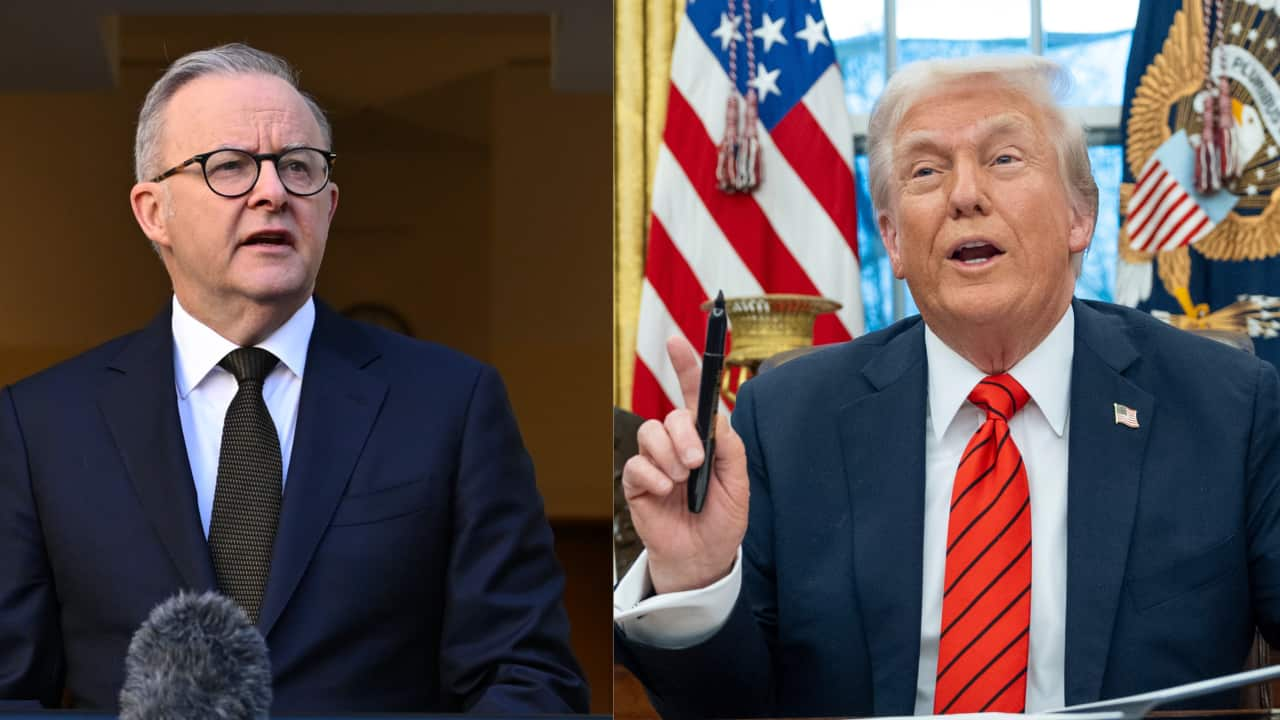Key Points
- Prime Minister Anthony Albanese and US President Donald Trump had a 40-minute call on Tuesday.
- Central to the discussions was whether Australia would be exempt from the new tariffs on aluminium and steel.
- The Minerals Council has warned the tariffs could set a "concerning precedent" for Australia's economic future.
United States President Donald Trump says he's giving "great consideration" to Australian pleas for an exemption on steel and aluminium tariffs.
Trump on Tuesday signed an executive order to impose a blanket 25 per cent tariff on all steel and aluminium imports, stating there would be "no exceptions, no nothing".
The statement cast doubt over Australia's likelihood of securing an exemption after Prime Minister Anthony Albanese said he had pleaded the case to Trump earlier that morning.
Following the 40-minute call with Albanese, Trump described the prime minister as a "very fine man".
"We have a surplus with Australia. One of the few. And the reason is they buy a lot of airplanes," Trump told reporters.
"I told him that that's something that we'll give great consideration to," he said, referring to tariff exemptions.
Earlier, Albanese said he stressed the benefits of Australia's trade relationship with the US, set to rise to US$7 billion ($11 billion) over the coming decade, during Tuesday's call with Trump.
"I presented Australia's case for an exemption," Albanese told reporters in Canberra.
"We agreed on wording to say publicly, which is that the US President agreed that an exemption was under consideration in the interests of both of our countries."
A tariff is a tax imposed when foreign goods are imported into a country, often pushing up the price of a product to cover the extra fee. In contrast, a locally produced product would be levy-free and possibly cheaper.
Albanese said it had been a "constructive and warm" call, refusing to stray from the phrasing "under consideration" as per his agreement with Trump.
"We'll continue to engage diplomatically, and we, of course, will use all of the human assets at our disposal... to stand up for Australia's interests."
Albanese and Australia's US ambassador, Kevin Rudd, face pressure to secure a deal similar to the exemption struck in 2018 by then-prime minister Malcolm Turnbull.
The prime minister reiterated that the relationship with our closest ally was "off to a tremendous start", foreshadowing the next meeting with Trump would occur at the Quad summit "or before".
The development is unlikely to ease the concerns of affected industries, with the Minerals Council CEO Tania Constable saying tariffs on Australian goods set a "concerning precedent".
"The real question is whether Australia is in the best position to weather these global changes. Right now, we aren't," she said in a statement.
"While our competitors are cutting costs and attracting investment, Australian industry is being weighed down by policies that make it harder to invest, expand, and compete," Constable said.
"If we don't fix this, we risk losing the very industries that keep our economy strong."
Business Council of Australia chief executive Bran Black was optimistic before the call about Australia's prospects of securing an exemption.
"Australia has a good story to tell — the US has a trade surplus with us and we have long-standing cultural and military ties between countries, particularly with the significant AUKUS agreement," he said.
Opposition leader Peter Dutton warned that if the US introduced tariffs, it could damage the relationship between the two countries, throwing bipartisan support behind exemptions.
"I want there to be a very clear message to the Trump administration that we don't believe that this tariff should be put in place and if it remains in place, then I believe it will damage the relationship between the United States and Australia."




